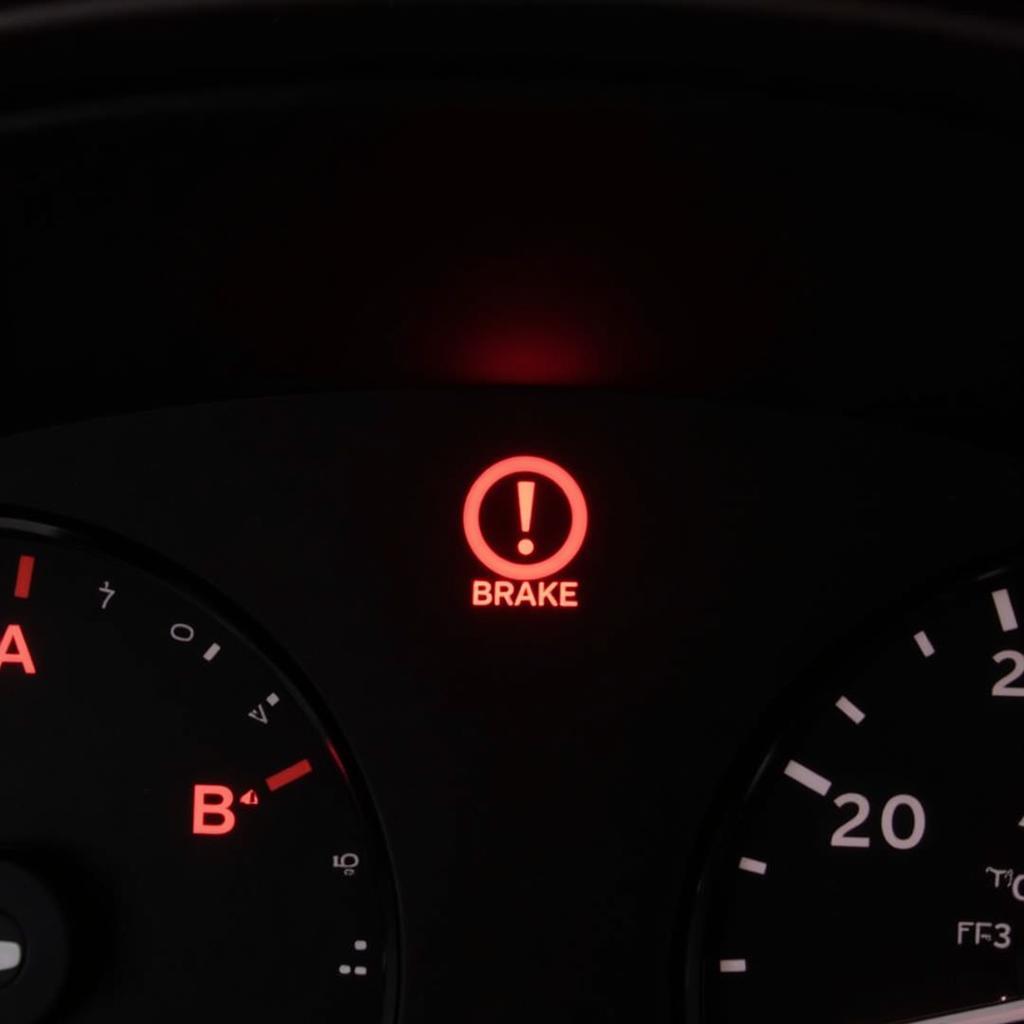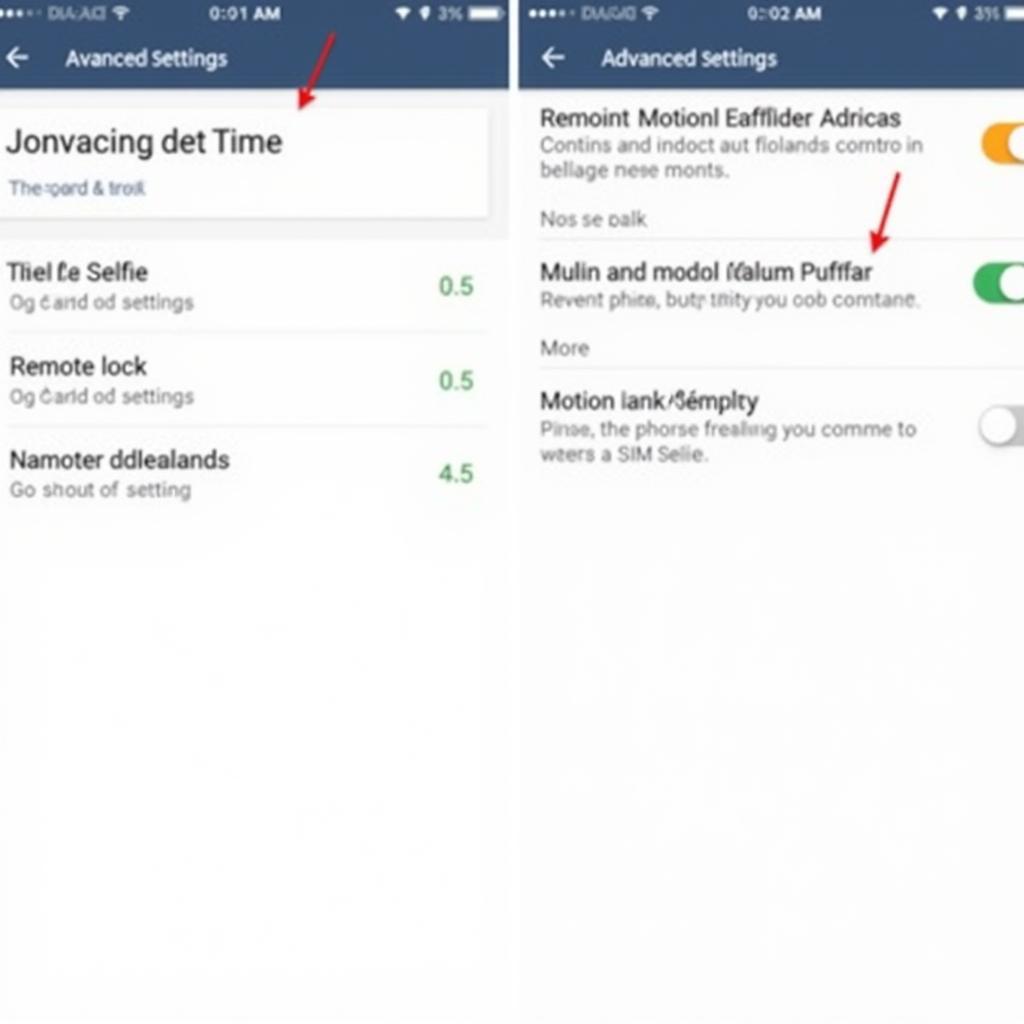A dead car battery is a frustrating experience, but knowing the symptoms can save you time and money. Understanding when your car battery is nearing its end allows you to proactively replace it, preventing unexpected breakdowns. This article covers the most common symptoms of a failing car battery and empowers you to take the necessary steps to keep your vehicle running smoothly.
A sluggish engine crank is one of the first and most noticeable signs of a failing car battery. If your engine turns over slowly or struggles to start, especially during cold weather, your battery may be nearing the end of its life. Similar to a battery flat car won t start, this indicates the battery is struggling to provide sufficient power.
Dim Headlights and Interior Lights
Dim headlights, especially at idle, can signify a weak car battery. The reduced brightness indicates the battery isn’t producing enough power to adequately illuminate the lights. This can also extend to interior lights and dashboard indicators. These symptoms are often overlooked, but they are crucial early indicators of a potential battery problem.
Clicking Sound When Starting the Car
A rapid clicking sound when you turn the key is a classic sign of a dead or dying car battery. This clicking noise indicates the starter motor is receiving insufficient power from the battery to engage the engine. This issue should be addressed immediately to avoid being stranded.
Electrical Malfunctions
A weak car battery can lead to various electrical problems within your vehicle. Power windows may operate slowly, the radio may cut out, or the power seats may struggle to adjust. These intermittent electrical issues can point toward a battery that’s unable to consistently deliver the required power. This shares similarities with bad battery voltage car where fluctuating voltage affects various systems.
The Check Engine Light Illuminates
While the check engine light can illuminate for various reasons, a failing battery can sometimes be the culprit. The car’s computer system monitors the battery’s performance, and if it detects an issue, it may trigger the check engine light. It’s always advisable to have the check engine light diagnosed promptly to determine the underlying cause.
Swollen Battery Case
A swollen or misshapen battery case is a clear sign of a serious problem. This usually indicates excessive heat buildup within the battery, which can be caused by overcharging or internal damage. A swollen battery poses a safety risk and should be replaced immediately.
How Long Does a Car Battery Last?
Most car batteries have a lifespan of three to five years. However, various factors can influence this, including extreme temperatures, driving habits, and the quality of the battery itself. For a more in-depth understanding of battery failure, see diagnosing dead car battery.
What to Do When Your Car Battery Needs Replacement
If you suspect your car battery needs replacement, it’s best to have it tested by a qualified mechanic. They can perform a battery test to determine its condition accurately. If a replacement is necessary, they can install a new battery and ensure it’s properly connected. In some situations, a dead key fob battery might be mistaken for a car battery issue, as explained in key fob battery dead start car.
Why is My Car Battery Dying Repeatedly?
Several reasons can cause a car battery to die repeatedly, including leaving lights on, a faulty alternator, parasitic drains, or corroded battery terminals. Identifying and addressing the underlying issue is crucial to preventing further battery problems. Issues like those encountered with a prius bad battery can be particularly complex and require specialist diagnosis.
Conclusion
Recognizing the symptoms of a car battery needing replacement is crucial for preventing unexpected breakdowns and ensuring the smooth operation of your vehicle. By paying attention to these signs and taking proactive steps, you can keep your car running reliably and avoid the inconvenience of a dead battery. Addressing these symptoms promptly will ensure you’re not left stranded with a car that won’t start due to a failing car battery.
FAQ
- How can I test my car battery at home? You can use a multimeter to measure the battery’s voltage.
- Can I jump-start a car with a completely dead battery? While possible, it’s less effective and might indicate a more serious issue.
- Does the car battery charge while driving? Yes, the alternator charges the battery while the engine is running.
- What type of car battery should I buy? Consult your owner’s manual for the recommended battery type.
- How can I prolong the life of my car battery? Avoid leaving lights on, clean the terminals regularly, and park in a garage during extreme temperatures.
- What are the signs of a bad alternator? Dim headlights, flickering lights, and strange noises from the engine are potential signs of a bad alternator.
- Can a bad battery cause damage to other car parts? Yes, a failing battery can strain other electrical components and potentially lead to damage.


